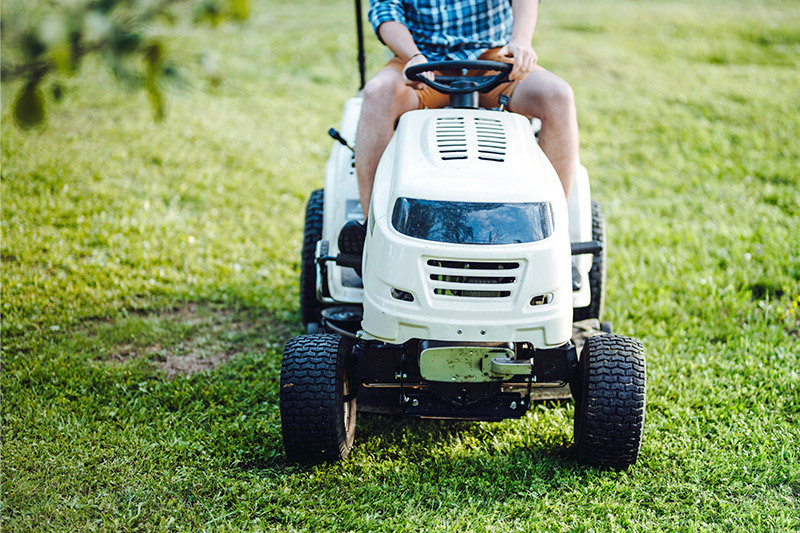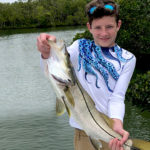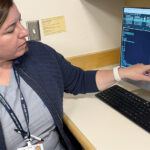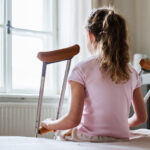What orthopedic trauma surgeons wish more parents knew about lawnmower injuries

Summer is full of delights: lemonade, ice cream, and fresh-cut grass to name a few. Unfortunately, the warmer months can also come with a type of injury that takes many families by surprise.
Mowing the lawn may seem perfectly normal and safe. However, the blades that cut the grass can also do serious damage to people, many of them children. In fact, as many as 17,000 children suffer lawnmower injuries each year.
Dr. Kristin Livingston, director of the Orthopedic Trauma Program at Boston Children’s Hospital, wants more families to understand the dangers lawnmowers pose. “These are life-changing accidents,” she says. They are also preventable — if families are aware.
How lawnmower injuries happen
Lawnmower injuries can happen when a child is riding or playing around a riding mower or operating a push mower. “We see injuries peak around the age of 4 and another peak at age 15,” says Dr. Livingston.
Younger children who slip or fall under a riding mower typically suffer severe foot and leg injuries. In older kids, serious hand or arm injuries can happen if they reach into the mower to clear debris while the engine is still running.
Not a safe family activity
After riding on a lawnmower with their parent or grandparent, a child may consider the machine a fun toy. Once they’ve made this association, the sound of a mower may send them running outside. If the person on the mower isn’t expecting them, disaster can happen.
“Often the person operating the mower didn’t hear the child, or the child wasn’t in their line of sight,” says Dr. Livingston.
No matter how they occur, most lawnmower injuries are severe, often resulting in amputation, numerous surgeries, and lengthy hospitalizations.
Repairing the damage done by a lawnmower often requires experts in orthopedic surgery, plastic surgery, trauma surgery, nerve repair, and infectious disease. Thus, many families bring their children to Boston Children’s, where all of the necessary specialties are available in one place.
Yet, even as they do everything possible to save a severely damaged limb, Dr. Livingston and her colleagues can’t help but wish such operations weren’t necessary. “Despite all the education we try to do, the number of lawnmower accidents don’t seem to be decreasing.”
Children can and should help with household chores they can do safely. Mowing the lawn, however, is not safe for young children.
Here are some ways parents can protect their children from lawnmower injuries.
Preventing riding mower injuries
- Never let a child ride on a lawnmower or garden tractor.
- Keep children inside whenever the mower is running.
- Make sure the blades are off when backing up.
- If your child enters the yard, turn the mower off.
Preventing push mower injuries
- Before allowing your child to mow the lawn, make sure they are strong enough and have good judgement. The American Academy of Pediatrics recommends children be at least 12 years old to operate a walk-behind mower and at least 16 years old to operate a riding mower.
- Teach your child about the potential hazards and how to operate the lawnmower safely.
- Make sure your child knows how to stop the engine in case of emergency.
- Supervise your child the first several times they mow the lawn.
More lawnmower safety tips from the American Academy of Pediatrics.
Learn more about the Orthopedic Trauma Program.
Related Posts :
-

Keeping kids safe this summer
Now that summer is here, many families are looking to get out of the house and enjoy the outdoors. But ...
-

New hope for Caden's leg after accident
By the time he was 12, Caden had spent almost half his life struggling to keep up with his peers. When ...
-

Ask a sports medicine specialist: Why are ACL tears so common among female athletes?
When an athlete is sprinting after an opponent who suddenly stops or changes direction, their anterior cruciate ligaments (ACLs) make ...
-

Forging a path back to school after orthopedic trauma
Orthopedic trauma can force children to miss school, sometimes for an extended period. But even when patients have regained enough ...





